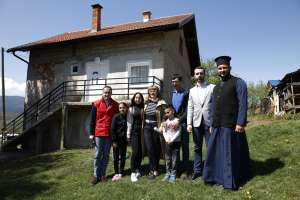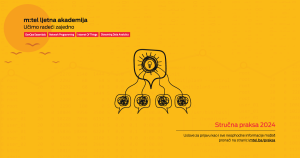SARAJEVO, February 10 (FENA) - There are a number of problems facing farmers across Bosnia and Herzegovina, from the fact that their products are not competitive in the markets to the fact that due to the lack of an established IPARD structure, they are unable to withdraw funds, which is why many are closing down their domestic holdings.
Author: Hana Imamović
Some of the issues are the responsibility of the entity institutions, but there are also issues that state institutions should take care of in order to facilitate their business and keep farmers on their farms.
This was emphasized during last week's session of the House of Representatives of the Parliamentary Assembly of Bosnia and Herzegovina when the state MPs discussed the annual reports on agriculture, nutrition and rural development of BiH for 2017 and 2018.
At the beginning of the debate, the Serb Democratic Party (SDS) MP Dragan Mektić raised the problem that in 2020, MPs are discussing already outdated reports and that they cannot adequately speak about the current situation in the said sectors.
The Party of Democratic Activity (A-SDA) MP, Jasmin Emrić, agreed with him, who also said that this situation was inappropriate, especially since, he said, there was a declaratory agreement of all political parties to support agricultural development and rural development.
However, Emrić argues that the reports show that although the entities allocate funds for agricultural production incentives, these funds are still insufficient, and believes that there is a need to continue advocating for increased budgetary allocations for this purpose.
“Many people in BiH who were engaged in agriculture are now leaving the country, and if we had recognized the importance of rural development earlier, I believe that a large number of them would remain in the countryside. The trend of departure is increasing now as farmers are facing a difficult market situation and are increasingly considering closing farms or reducing production volumes,” added Emrić.
He believes that the competent state-level institutions have not done what was necessary and what was their obligation, such as the issue of establishing IPARD operating structures, as Emrić pointed out earlier.
It is incomprehensible, he added, that the Agency for Payments in Agriculture, Fisheries and Rural Development has not been established for many years, which would allow access to IPARD funds intended for these farmers to be competitive.
“Farmers in BiH are not prepared for the European Union. For 10 years we have not been able to set up an agency and adopt an IPARD operating structure, which is why they are not allowed to access millions of euros annually,” says Emrić, adding that the state-level authorities should at least show that they understand their needs because we see that there is no interest in solving their problems.
Emrić suggested that the Council of Ministers convenes a meeting with entity representatives and agree on the establishment of a model for the BiH IPARD operating structure, which was supported by the MPs.
The Croat Democratic Union (HDZ) MP Nikola Lovrinović proposed that the representatives of the cantonal competent institutions be invited to attend the meeting because of the shared competencies in the area.
Lovrinović also proposed another conclusion that would task the Council of Ministers to analyze the possibilities within 90 days and propose a model for establishing a fund to support farmers and agricultural production but the deputies did not support Emrić's conclusion.
During the discussion, some MPs indicated that the reports on the state of agriculture did not reflect the facts and called on the authors to correct it.
In order to ensure easier business for farmers, the Independent Bloc MP Aida Baručija called for the establishment of a system that would determine the lowest guaranteed purchase price for products, especially when it comes to products that are primarily exported from BiH.
As an example, she cited the situation with raspberries production, where because of the uncertainty and lack of this type of insurance, this line of business has failed as a chance for rural development for those who earned a livelihood from this product.
However, her proposal did not receive the required majority in the House of Representatives of the Parliamentary Assembly of Bosnia and Herzegovina.
(FENA) S. R.











